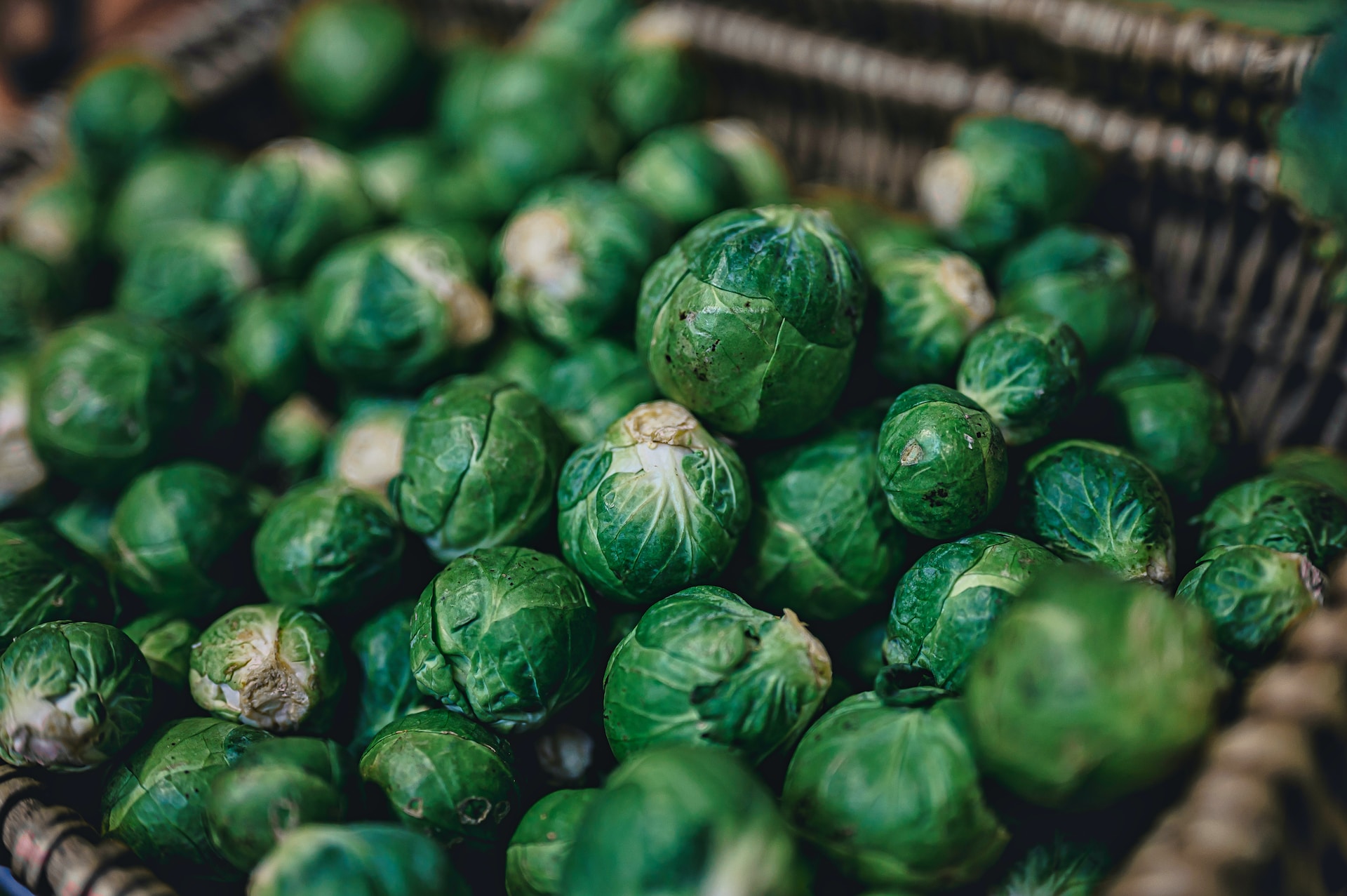
When it comes to vegetables, Brussels sprouts often divide opinions. Some people love their unique flavor and texture, while others cringe at the mere thought of eating them. But regardless of where you stand on the Brussels sprouts spectrum, there’s no denying that these tiny cabbages pack a punch when it comes to nutrition.
In this article, we’ll uncover some fascinating facts about Brussels sprouts that may surprise you. From their humble origins to their impressive health benefits, there’s more to these miniature veggies than meets the eye. So whether you’re a Brussels sprouts enthusiast or simply curious about expanding your culinary horizons, read on to discover 16 interesting facts about Brussels sprouts.
Key Takeaways:
- Brussels sprouts are packed with nutrients like vitamins C and K, fiber, and antioxidants, making them a healthy addition to your diet. They can be roasted, steamed, or sautéed for delicious flavors.
- These mini cabbage-like vegetables, originally grown in ancient Rome, are a winter vegetable and can be grown in home gardens. They have a distinctive taste and are low in calories, making them a versatile and nutritious ingredient.
Brussels sprouts are members of the cabbage family.
These mini cabbage-like vegetables belong to the Brassicaceae family and are closely related to other cruciferous vegetables like kale, cauliflower, and broccoli.
Brussels sprouts are packed with nutrients.
They are an excellent source of vitamins C and K, as well as fiber, folate, and antioxidants, making them a nutritious addition to your diet.
Brussels sprouts get their name from the capital of Belgium.
These vegetables were popularized in Brussels, Belgium, and derived their name from the city where they were widely cultivated.
Brussels sprouts were first grown in ancient Rome.
While they gained popularity in Brussels, Brussels sprouts were originally cultivated in ancient Rome as early as the 13th century.
Brussels sprouts are a winter vegetable.
They thrive in cooler temperatures and are often harvested in the late fall or winter, making them a perfect addition to holiday meals.
Brussels sprouts grow on long stalks.
Before they are harvested, Brussels sprouts grow tightly packed along the length of a tall stalk, similar to broccoli.
Brussels sprouts can be roasted, steamed, or sautéed.
These versatile vegetables can be prepared in various ways, including roasting, steaming, or sautéing, to enhance their natural flavors.
Brussels sprouts are low in calories.
With only about 38 calories per cup, Brussels sprouts are a great choice for those watching their calorie intake while still getting essential nutrients.
Brussels sprouts have a distinctive taste.
The flavor of Brussels sprouts is often described as slightly nutty and mildly bitter, but cooking them correctly can help mellow out the bitterness.
Brussels sprouts are rich in antioxidants.
These vegetables contain high levels of antioxidants that help protect the body against harmful free radicals and reduce the risk of chronic diseases.
Brussels sprouts are a good source of fiber.
Fiber is essential for a healthy digestive system, and Brussels sprouts provide a generous amount of dietary fiber that aids in digestion.
Brussels sprouts can help support a healthy immune system.
Thanks to their high vitamin C content, Brussels sprouts can boost your immune system and help fight off infections and illnesses.
Brussels sprouts may have anti-cancer properties.
Studies have shown that compounds found in Brussels sprouts, such as sulforaphane, may help inhibit the growth of cancer cells.
Brussels sprouts are a versatile ingredient.
Aside from being a delicious side dish, Brussels sprouts can be added to salads, stir-fries, pasta dishes, and even used as a pizza topping.
Brussels sprouts can be grown in home gardens.
If you have a garden, you can try growing your own Brussels sprouts. They require a cool climate and take around three to four months to mature.
Brussels sprouts should be stored in the refrigerator.
To keep them fresh and maintain their flavor, store Brussels sprouts in a plastic bag in the refrigerator’s crisper drawer for up to one week.
Conclusion
In conclusion, Brussels sprouts are a versatile and nutritious vegetable that deserve a place on your plate. Whether roasted, sautéed, or even shredded in salads, Brussels sprouts offer a unique blend of flavor and health benefits. They are packed with vitamins, minerals, and fiber, making them a great addition to any balanced diet. Plus, their reputation for being bitter is often misunderstood; when cooked properly, Brussels sprouts can be incredibly delicious. So why not give these little green gems a try and discover the many reasons to love Brussels sprouts!
FAQs
1. Are Brussels sprouts good for you?
Yes, Brussels sprouts are highly nutritious. They are rich in vitamins C and K, as well as fiber and antioxidants, which contribute to various health benefits.
2. How should I prepare Brussels sprouts?
Brussels sprouts can be prepared in numerous ways. You can roast them in the oven, sauté them in a skillet, or even shred them for salads. Experiment with different cooking methods to find your favorite!
3. Do Brussels sprouts taste bitter?
Brussels sprouts can have a slightly bitter taste if not cooked properly. To reduce bitterness, try roasting them with olive oil and seasonings, which enhances their natural sweetness.
4. Can I eat Brussels sprouts raw?
While Brussels sprouts can be eaten raw, they are often enjoyed cooked to soften their texture and enhance their flavor. However, if you enjoy the taste and texture of raw Brussels sprouts, feel free to incorporate them into your salads or slaws.
5. Are Brussels sprouts suitable for a vegetarian or vegan diet?
Yes, Brussels sprouts are a great addition to vegetarian and vegan diets. They are a good source of plant-based protein and iron, as well as other essential nutrients.
6. Can Brussels sprouts help with weight loss?
Brussels sprouts are low in calories and high in fiber, making them a filling and nutritious option for weight loss. They can help you stay satisfied while providing essential vitamins and minerals.
7. Are there any potential allergens in Brussels sprouts?
While Brussels sprouts are generally safe to consume, some individuals may have an allergic reaction to them. If you have a known allergy to cruciferous vegetables, it’s best to avoid Brussels sprouts.
8. Can I freeze Brussels sprouts?
Yes, you can freeze Brussels sprouts. To freeze them, blanch them in boiling water for a few minutes, then transfer them to an airtight container or freezer bag. They can be stored in the freezer for up to 12 months.
9. How do I pick fresh Brussels sprouts?
When selecting Brussels sprouts, look for firm, compact heads with bright green leaves. Avoid sprouts with yellowing or wilted leaves, as they may not be as fresh.
10. Can I grow Brussels sprouts in my garden?
Yes, Brussels sprouts can be grown in a home garden. They prefer cool weather and can be planted in early spring or late summer for a fall harvest. Make sure to provide adequate space and soil conditions for optimal growth.
If you're fascinated by Brussels sprouts, dive deeper into their world with 19 more intriguing facts about these tiny cabbages. Kalettes, a hybrid of kale and Brussels sprouts, also offer a unique twist on this classic vegetable. For a broader perspective, explore the wonders of the Brassica family, which includes not only Brussels sprouts but also other nutritious favorites like broccoli, cauliflower, and cabbage.
Was this page helpful?
Our commitment to delivering trustworthy and engaging content is at the heart of what we do. Each fact on our site is contributed by real users like you, bringing a wealth of diverse insights and information. To ensure the highest standards of accuracy and reliability, our dedicated editors meticulously review each submission. This process guarantees that the facts we share are not only fascinating but also credible. Trust in our commitment to quality and authenticity as you explore and learn with us.


